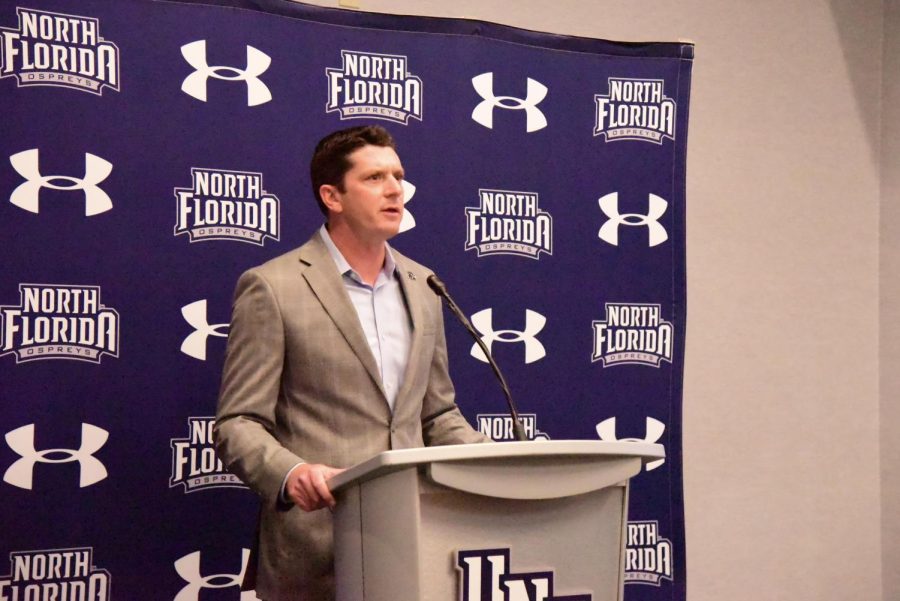This article expresses the views of its author(s), separate from those of this publication. Readers are encouraged to comment or submit a Letter to the Editor to share their opinions. To submit a Letter to the Editor, follow the instructions here.
After reluctantly seeing “Despicable Me 4” for the second time in theaters, I thought, “Number four might just be too far in a film franchise.” As I looked at recent film releases, I noticed that many were sequels, prequels or remakes. It made me wonder: What ever happened to original film ideas?
To give a quick review: “Despicable Me 4” was not the worst film addition that I have ever seen. Regardless of its slightly drawn-out nature, I am truly an advocate for anything Steve Carrell-related.
The basis of the story revolves around Gru and Lucy relishing in their family life, which has been completed by their newest addition, Gru Jr. The baby is a complete menace to Gru, adding an extra comedic element to the film. However, with Gru still living the spy life, an old enemy resurfaces, putting them all in danger.
In classic “Despicable Me” fashion, the Minions were outrageous and comedic, and I will admit that Minionese never fails to gain a chuckle from me.
I also appreciate the slightly mature jokes that fly over the heads of the average naive kid, a telltale of an Illumination Entertainment film versus one from Disney Pixar. One of the best examples of this is in this most recent film when Agnes (the youngest of Gru’s daughters) says the word “sit” to her goat, but instead, the goat poops, to which she responds with, “Aw, Lucky! I said ‘sit’!” I will always support good old-fashioned wordplay.
The thing that caught my attention, however, was the ending of the film. When Gru and his team of minions inevitably catch the bad guy (Maxime Le Mal), he and Gru end up in a sing-off in the middle of a high-security villain prison. As the shot pans around their audience of prisoners, you will catch sight of every villain that Gru has fought in past franchise films– El Macho, Vector and Belle Bottom, to name a few. Even Dr. Nefario makes a small guest appearance towards the end, briefly coming out of his retirement.
As the film finished in a musical fashion, I immediately loved that these characters were put at the end as a nod to Gru’s previous adventures. However, once the credits rolled and I was able to reflect on the film as a whole, I came to this realization that I had been sucked into a nostalgia vortex. Even the simple appearance of past characters elicited a stronger appreciation for this film. Without that, I would most likely have had something to say about how the story lacked a specific connection to other films.
The effects of nostalgia have kept sequels, prequels and remakes at the forefront of the film scene in recent years. Film companies can appeal to our feelings of nostalgia and sentiment, which makes our need to see new versions or continuations of already-known films so enticing.
The Oxford English Dictionary defines nostalgia as “Sentimental longing for or regretful memory of a period of the past, esp. one in an individual’s own lifetime.” This concept of “longing” makes things of the past so attractive to our 21st-century minds. We imagine a time when things were seemingly better despite the inaccuracy of this belief.
From a psychological standpoint, nostalgia has various positive effects, such as improving mood, producing feelings of social connectedness and developing concepts of life meaning. A desire for these feelings is powerful during times of stress, which in a post-COVID-19 world is something we have all had to endure at a heightened level. The feelings of familiarity keep us coming back to experience these old storylines and characters.
However, in the entertainment world, nostalgic content patterns tend to point to unoriginality.
As of 2018, sequels and prequels comprise a third of the top-grossing films.
This year alone, at least 21 of the biggest box office films released have either been sequels, remakes or additions to a pre-existing franchise. This number does not include major movies and television series released through streaming platforms.
Some of the most recent big box office remakes and sequels to have come out are “Inside Out 2,” “Twisters,” “Deadpool & Wolverine” and “Alien: Romulus.” All of these, so far, are in the top 12 grossing movies worldwide of 2024, with “Inside Out 2” ranking number one, followed by “Deadpool & Wolverine.”
However, aside from attempting to blind their audiences with nostalgia, film companies also stick to pre-existing storylines because they are safe. Suppose they can keep using the same characters or plotlines that were successful. In that case, big film production companies can overshadow the films of those smaller companies who can’t afford their budget levels for marketing.
As someone who frequents the movie theater, I tire of seeing trailers for movies that have already been in the spotlight. There is no need to keep dragging storylines from the 80s and 90s to reinvent them in our 21st-century world.
Rather than rewatching different versions of the same stories, I would rather see new material emerge in the film world. Nowadays, we deserve movies that reflect our current culture and give future generations something to be nostalgic for.
Especially when it comes to remakes, the newer versions leave me less appreciative and nostalgic, more disappointed and feeling like they have sullied the goodness of the original. This is because my expectations are preset, and if they don’t mention a specific character or replicate a scene, then the film becomes a flop.
While nostalgia is not inherently a terrible concept, the overabundance of sequels and reused storylines is beginning to numb us to its positive effects on our culture. Instead of jumping to see anything with a familiar title, people are becoming more selective about what remakes they support.
Next time you go to Tinseltown for a $5 Tuesday movie, don’t just choose a familiar film to see what it is like. Read critic reviews before and save yourself the potential disappointment of a big movie production company ruining what was already a good thing.
___
For more information or news tips, or if you see an error in this story or have any compliments or concerns, contact editor@unfspinnaker.com.












